UC Law SF Students Volunteer to Help People Seeking U.S. Citizenship
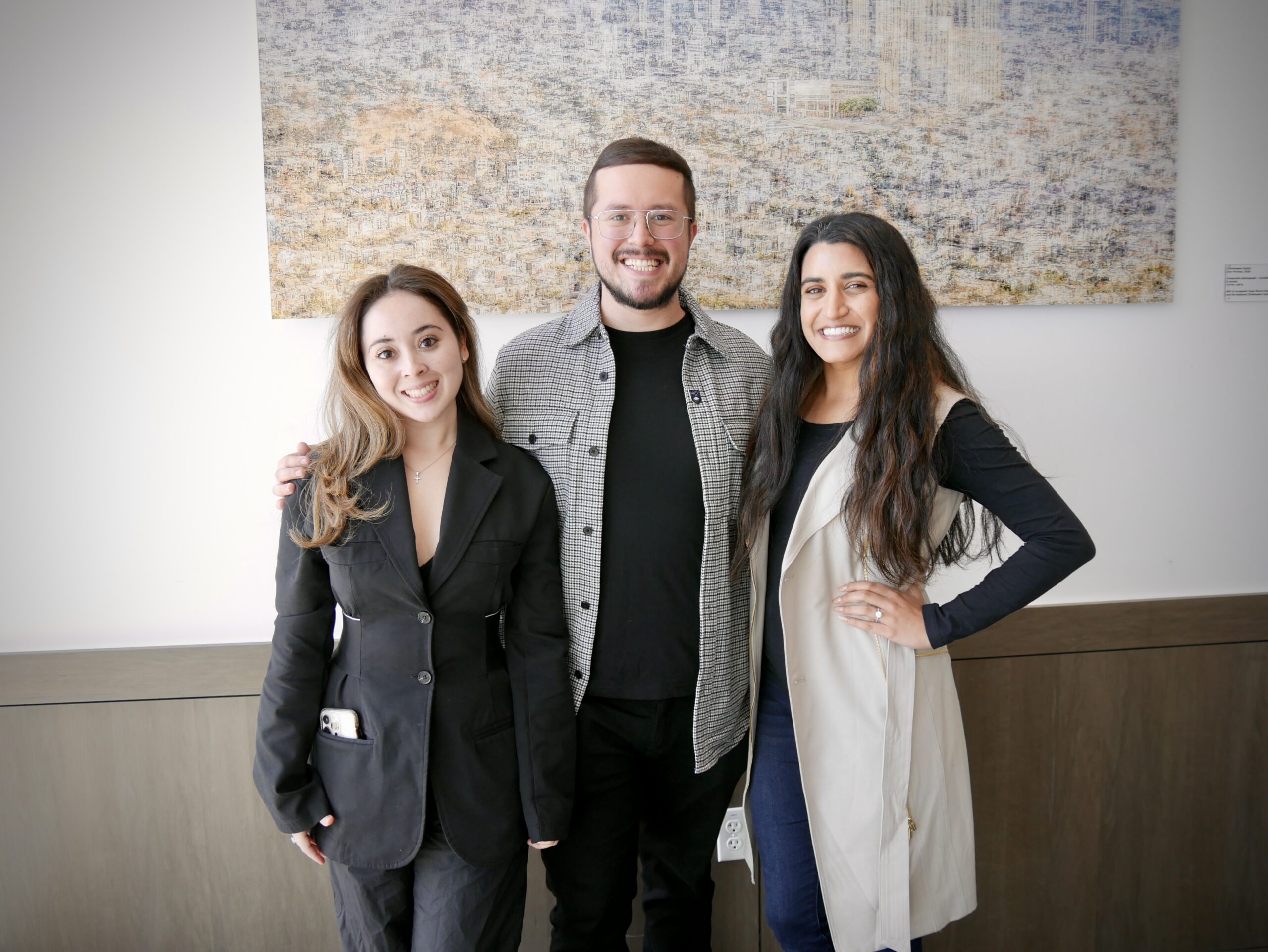
UC Law SF students Gloria Cenizo Ledon ’25, Marco Tueros del Barco ‘25, and Mareena Haseeb ’25 (left to right) volunteered to help permanent residents apply for U.S. citizenship.
UC Law SF student Gloria Cenizo Ledon ’25 understands how hard it can be to navigate a complex bureaucracy and fill out complicated forms to apply for U.S. immigration benefits.
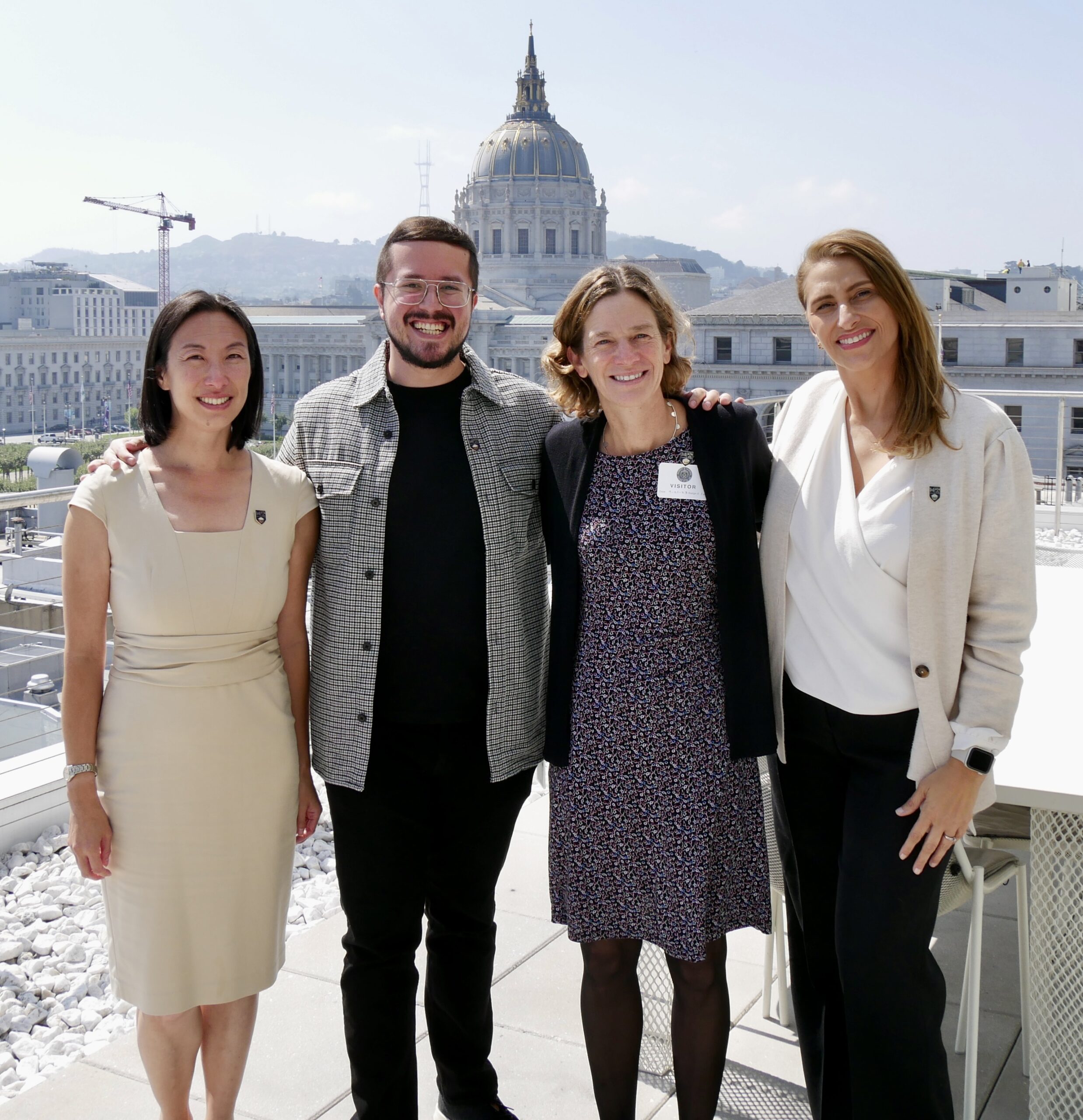
RICE Faculty Director Ming Hsu Chen moderated a panel talk with UC Law SF student Marco Tueros del Barco ’25, UVA Law Professor Amanda Frost, and Lucia Martel Dow LLM ’12 of the Immigrant Legal Resource Center (left to right).
She grew up crossing the U.S.-Mexico border almost daily and helped her immigrant mother obtain permanent residency in the U.S. That’s why she decided to volunteer this fall to help noncitizens apply for naturalization.
“I know how scary the immigration process can seem sometimes,” she said. “I enjoy bringing knowledge and assistance, and letting these individuals know that they aren’t alone and that I can help to the best of my ability.”
Cenizo is one of 10 students who helped noncitizens fill out applications for naturalization in a virtual clinic offered by the Immigration Institute of the Bay Area in partnership with the UC Law SF Students for Immigrants’ Rights Pro Bono (SIR). Each student was trained on the application process and helped clients under an attorney’s supervision – clients who could otherwise not afford legal assistance.
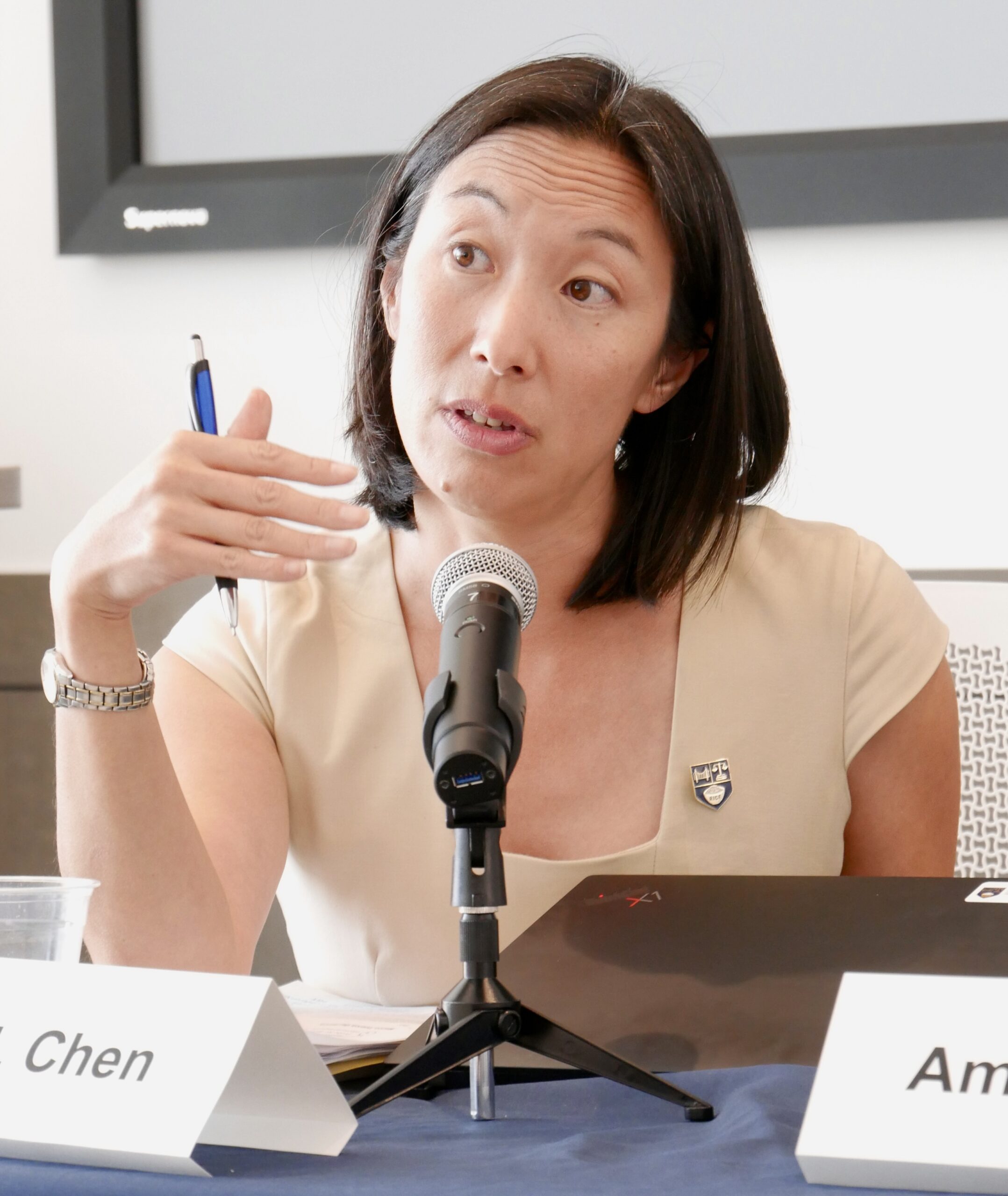
Ming Hsu Chen is Faculty Director of the Center for Race, Immigration, Citizenship and Equality (RICE) at UC Law SF.
The Sept. 20 clinic coincided with a Citizenship Day panel talk on Sept. 21 sponsored by the Center for Race, Immigration, Citizenship, and Equality (RICE) at UC Law SF. The panel discussed the history of U.S. naturalization, modern barriers to obtaining citizenship, and reflections on recent volunteer work by law students.
The panel’s moderator, RICE Faculty Director and Professor of Law Ming Hsu Chen, said she views citizenship as not just a part of immigration law, but a concept that helps people understand what it means to be an American — and one that intersects with issues of race, immigration, and equality.
“When I think about the word citizenship, I think it’s actually a way to bring together conversations that sometimes are siloed, especially in law schools,” Chen said. “I’m particularly pleased to have moments like this that bring together teaching, research, and service.”
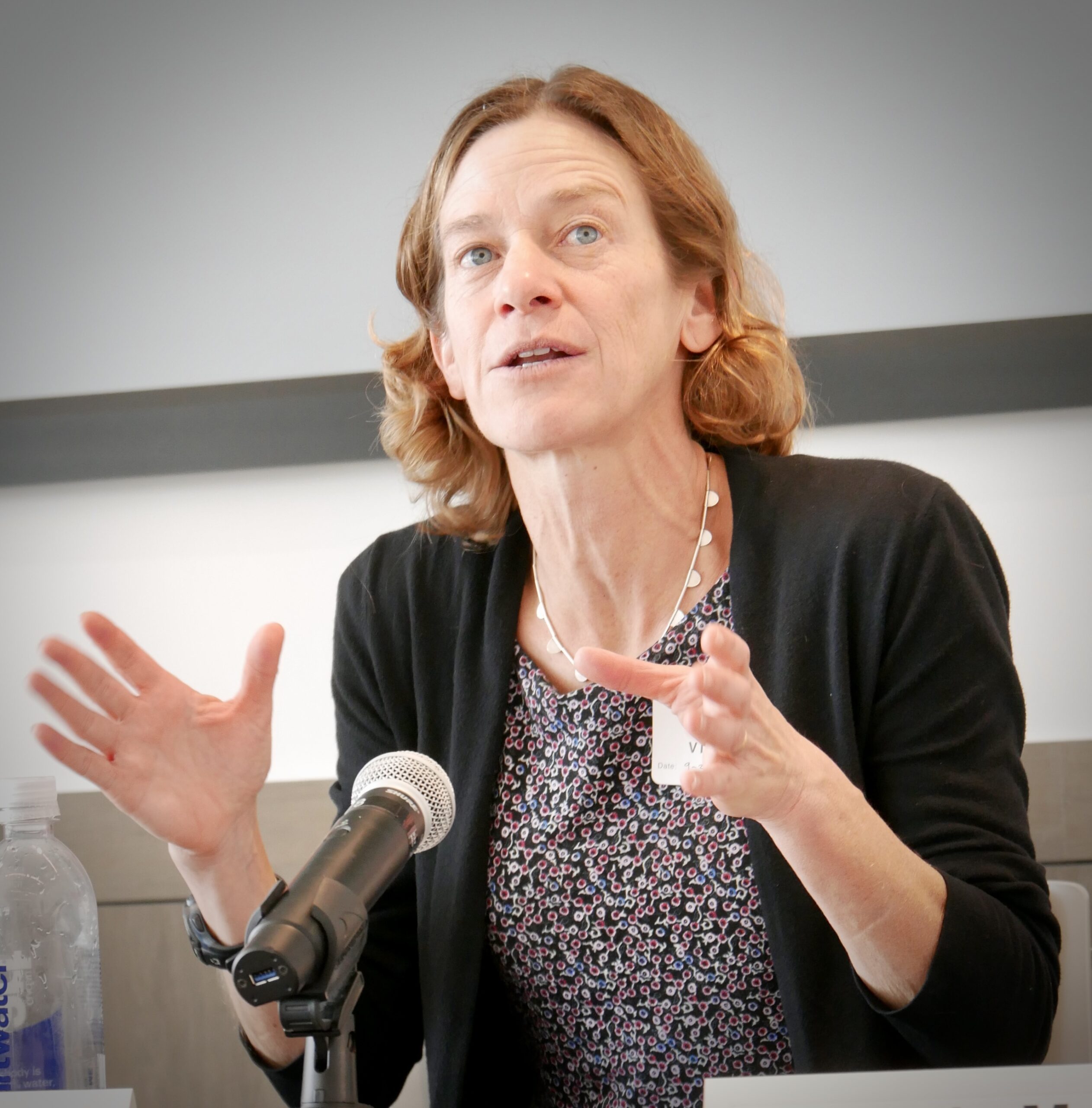
UVA Law Professor Amanda Frost is an expert on immigration and citizenship.
The panel featured three guests: University of Virginia Law Professor Amanda Frost; Lucia Martel Dow, LLM ‘12, Director of the Immigrant Legal Resource Center’s New Americans Campaign; and SIR President Marco Tueros del Barco ’25, who helped organize the recent citizenship clinic.
Frost traced the history of naturalization from the first U.S. immigration law in 1790, which allowed only “free white persons” to gain citizenship, to the Immigration and Nationality Act of 1952, which ended more than 150 years of race-based restrictions on naturalization.
“[Lawmakers] could foresee the future of the United States would be immigrants from all over the world, and at least some people didn’t want to see those nonwhite immigrants become citizens,” she said.
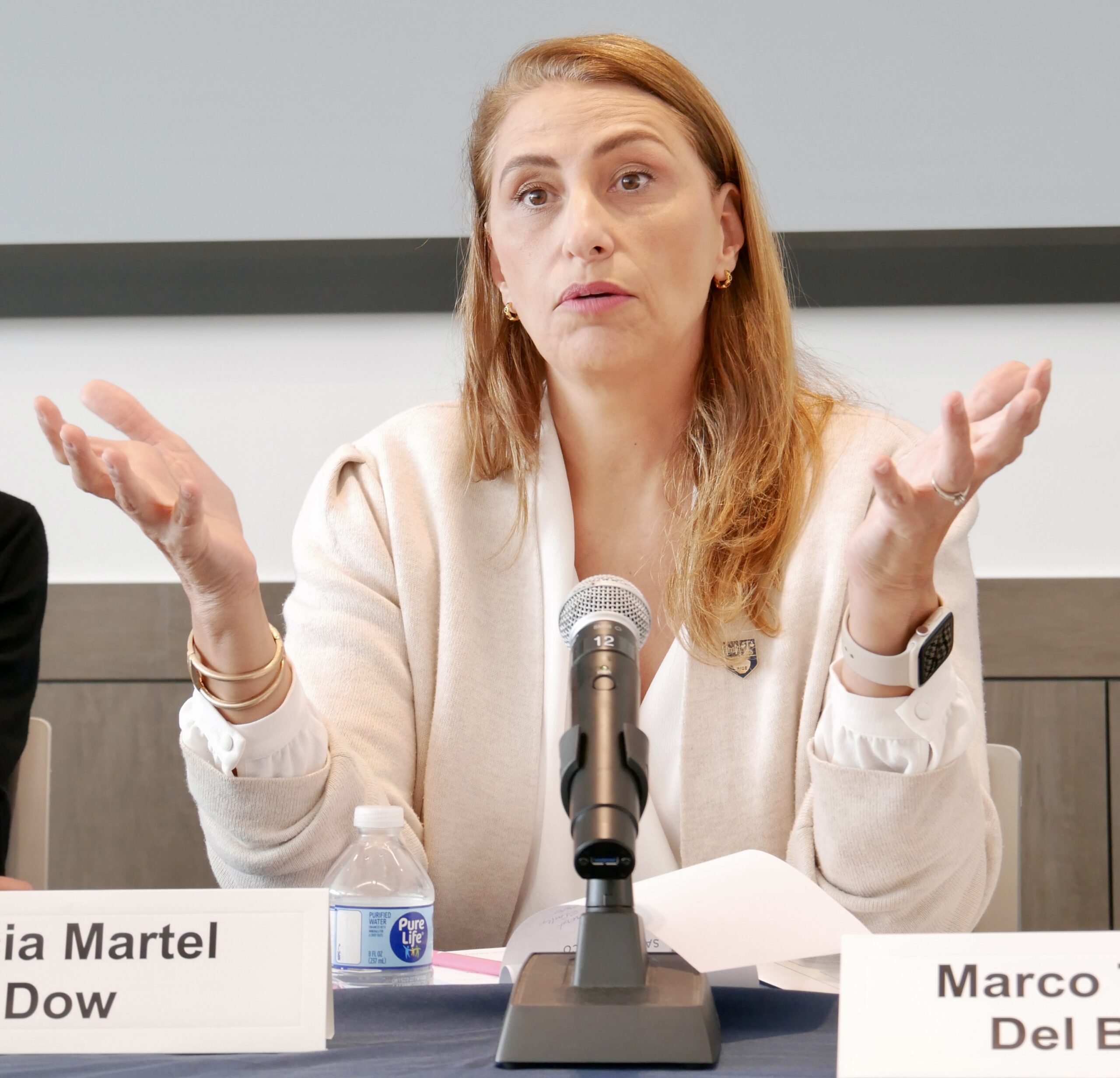
Lucia Martel Dow, LLM ’12, is Director of the Immigrant Legal Resource Center’s New Americans Campaign.
Dow talked about barriers that many immigrants face when applying for citizenship, including a $725 application fee, an English-speaking requirement, and difficulty accessing immigration legal services. She also emphasized the power of new citizens to help steer the direction of government policies when they exercise their rights to vote.
“There are major implications in terms of mobilization and power building that come with becoming a U.S. citizen in this country,” she said.
Tueros del Barco, who immigrated to the U.S. from Peru at age 4, said he found it rewarding to help immigrants like himself apply for citizenship. He also noted how the application asks invasive questions about one’s past, which can be re-traumatizing for many people. He said it’s important to practice patience and empathy when working with clients.
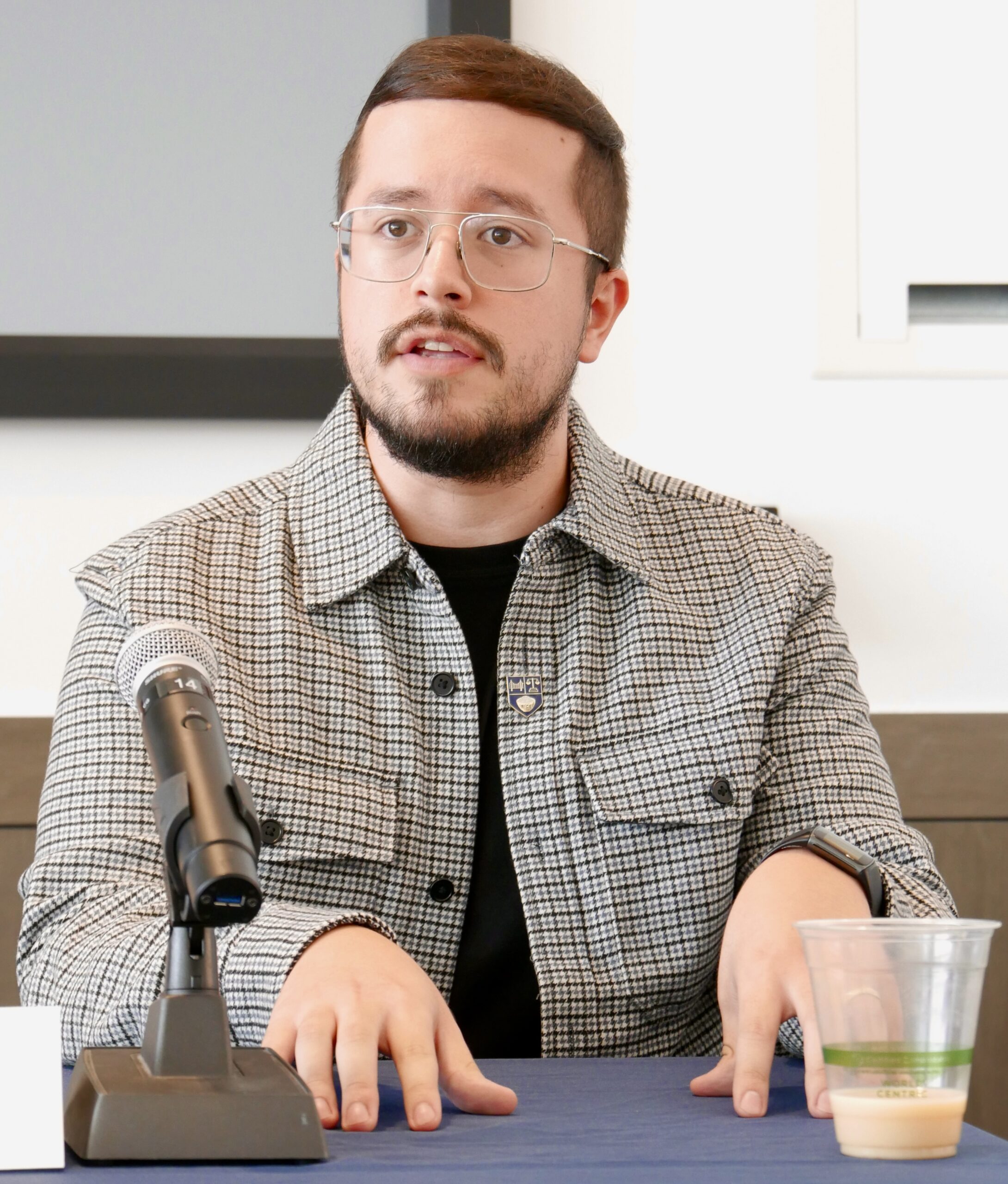
Marco Tueros del Barco ’25 is President of Students for Immigrants’ Rights Pro Bono at UC Law SF.
“Many people have waited decades to get to this point, and it’s normal for this process to bring up what may have otherwise been repressed trauma,” he said.
SIR Vice President Mareena Haseeb ’25, who also volunteered for the clinic, said she found it valuable to work with a client and his wife, with whom she built a strong rapport.
“I was able to make them smile and laugh throughout the stressful and vulnerable process by sharing my own stories to relate to their experiences,” she said. “Overall, I truly enjoyed this volunteer experience, as it reaffirmed my interest in serving immigrant communities in the future.”
More virtual citizenship clinics are planned for Oct. 26, Nov. 16, and April 4. Students interested in participating can sign up on UC Law SF’s online pro bono registration system, Track It Forward.